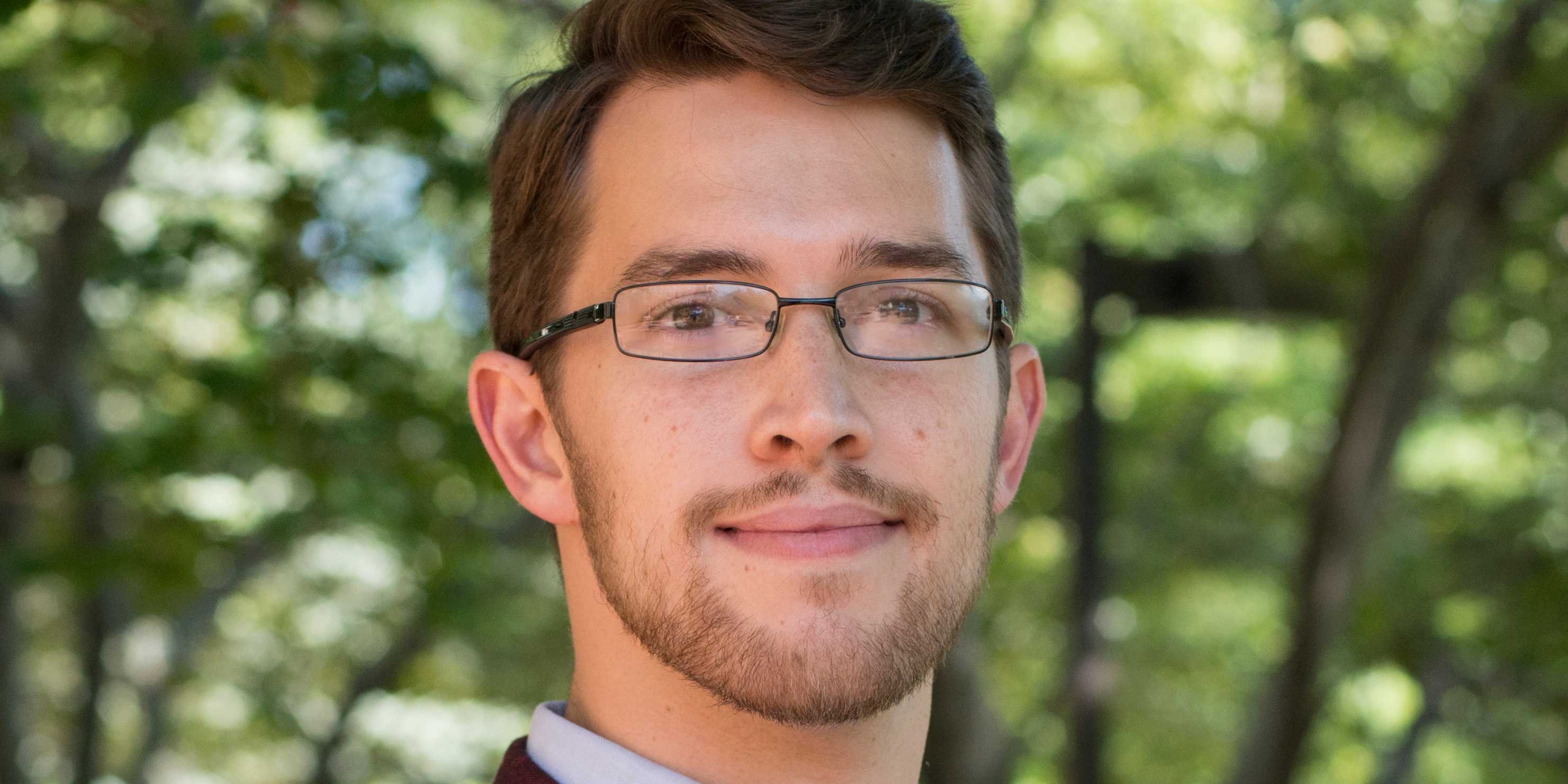AI boost for D-MAVT
Mark Fuge has been appointed Full Professor of Artificial Intelligence in Engineering Design in the Department of Mechanical and Process Engineering. Starting 1 July 2024, he will strengthen the Department’s use of AI in technical design and product development processes.

AI is all the hype now. When did you first become interested in artificial intelligence (AI)?
During my Bachelor studies at Carnegie Mellon University, a research advisor showed me software that performed Topology Optimization, i.e. the computer-based optimization of technical components. It was the first time that I had seen a computer design anything that I would have called “creative” - although it was not really AI yet. From there, I then took a course in AI and Engineering with machine learning and mechanical design pioneer external page Burak Kara – one of my all-time heroes – and saw what AI might be capable of. I was hooked from that moment on.
Mechanical engineering is not typically associated with artificial intelligence. How do you combine AI and engineering in your research?
At its core, engineering is about using techniques from science and mathematics to solve real-world problems – and AI is just one different area of science and mathematics we might use. Specifically, we study how a computer can learn to design things like humans do or by using the laws of physics as its guide. For example, we have built AI systems that help surgeons create tissue-engineered grafts for children born with congenital heart disease, design more efficient airplane wings or helicopter transmissions, and even understand how to help people maximize their creativity.
Studying the intersection of AI and mechanical design beyond just one application allows us to tackle many different important societal problems at the same time.
What are the biggest challenges?
On the technical side, we are still discovering how best to combine what we already know from centuries of engineering, such as physical laws or human best practices, with new advances in artificial intelligence. Honestly though, I think the biggest challenges do not lie in the area of technology, but in determining how we can best work together across disciplines.
For example, how might we address the impact of AI on traditional engineering jobs or workforce training programs, so that we can minimize potential disruptions to society or existing labor markets? Or how do we protect the valuable Intellectual Property of firms while also leveraging data to bolster their competitive advantages and maintain quality? Responsibly answering these types of bigger questions requires researchers to maintain a constructive dialogue with society and industry, and this is a challenge when AI technology is changing so rapidly.
Why did you originally choose to go into engineering?
During childhood, I was always taking apart broken appliances or toys, mostly just for the fun puzzle of figuring out how they worked. When I enjoyed my physics class in high school, I asked my physics teacher if I should pursue a physics degree. He happened to be a former mechanical engineer, so he told me about engineering programs and took me under his wing during after-school clubs and engineering projects. Reflecting back, I learned from him how much teachers can positively change the lives of young people. Now, I try to bring that sense to my own role as a professor and to nurture student growth in ways that my past teachers did for me.
This will be your first position outside the U.S.. Why did you choose ETH Zurich?
On a personal level, I have family here in Zurich, so my children will be near their cousins. Plus, Switzerland is one of the world’s safest countries and offers many opportunities for an active lifestyle, thus providing an excellent environment for my children to grow up in.
On a professional level, the research infrastructure and funding flexibility of ETH Zurich is second to none in the world and this enables research activities that would be almost impossible to achieve elsewhere. I have also come to appreciate ETH Zurich’s desire to help staff at all levels achieve a nurturing and sustainable work-life balance while also achieving excellence.
As a final question, would you tell us one thing about yourself that we cannot learn from your CV?
Back when I was a doctoral student, I worked as a “Culinary Apprentice” in the evenings at a local cooking school near UC Berkeley’s campus. In exchange for washing vegetables and setting up tables, I was able to take the cooking class for free. I took over 80 different classes covering cuisines and techniques from all over the world. So, if you ever come over to my home for dinner and wish to try an international dish you cannot find in Zurich, just let me know your requests!
Short profile
Mark Fuge (37), U.S. citizen
- 2021-2024 Associate Professor of Mechanical Engineering and affiliate faculty in the Institute for Systems Research, University of Maryland, USA
- 2014-2021 Assistant Professor of Mechanical Engineering and affiliate faculty in the Institute for Systems Research, University of Maryland, USA
- 2010-2014 Doctoral Degree, University of California at Berkeley, USA
- 2009 Master’s Degree in Mechanical Engineering, Carnegie Mellon University, USA
- 2005-2009 Bachelor’s Degree in Mechanical Engineering, Carnegie Mellon University, USA